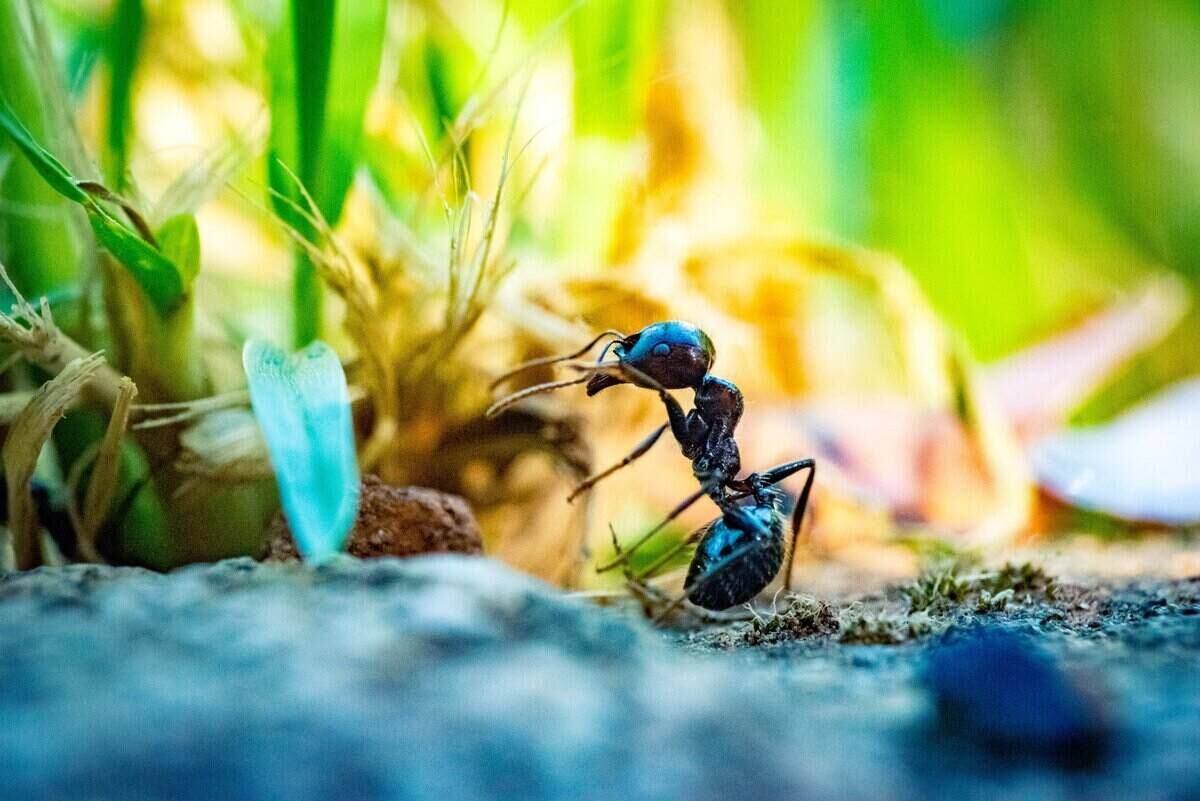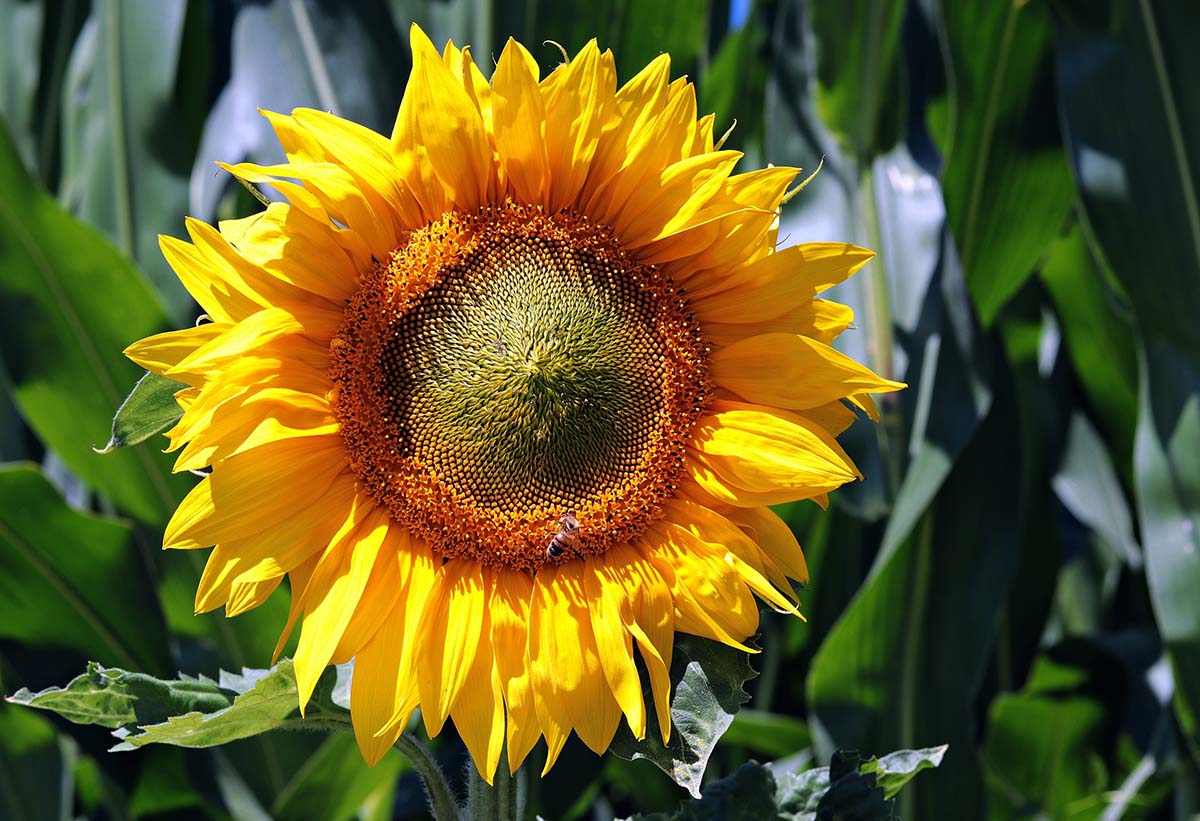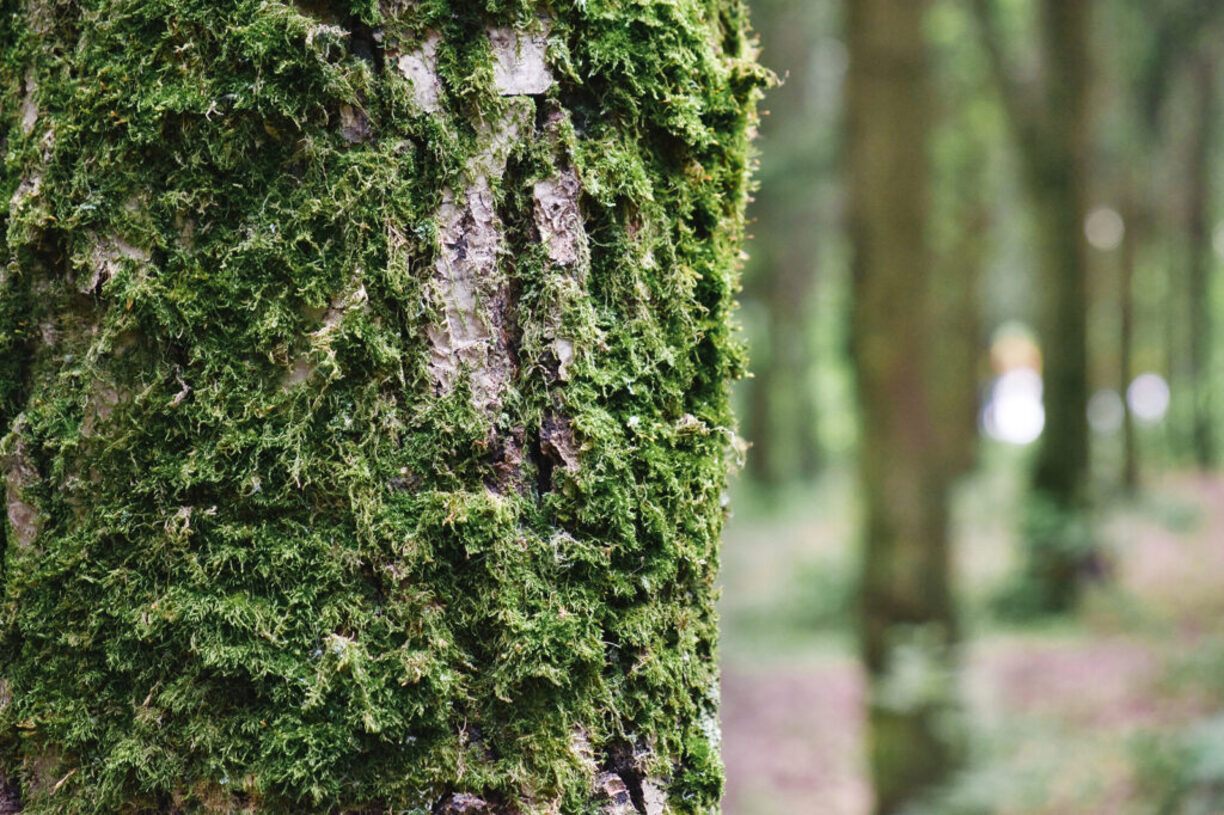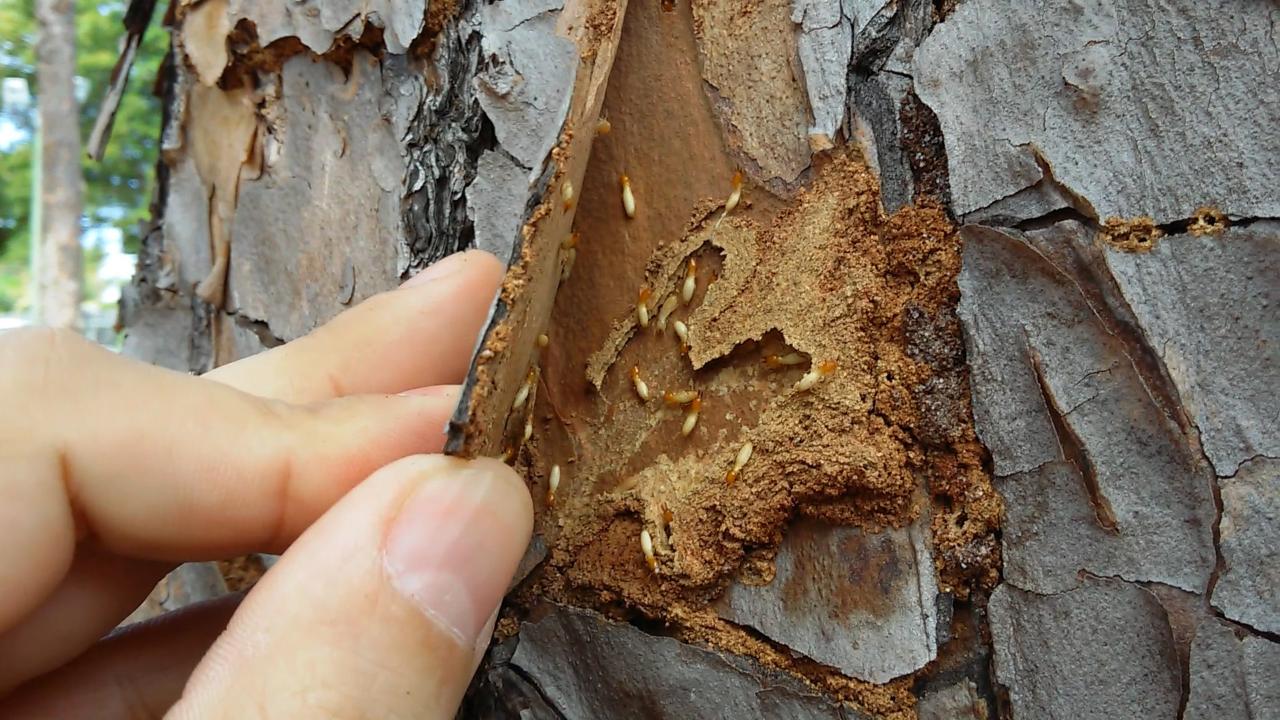Home>Gardening Tips and Tricks>How To Get Rid Of Ants In Compost
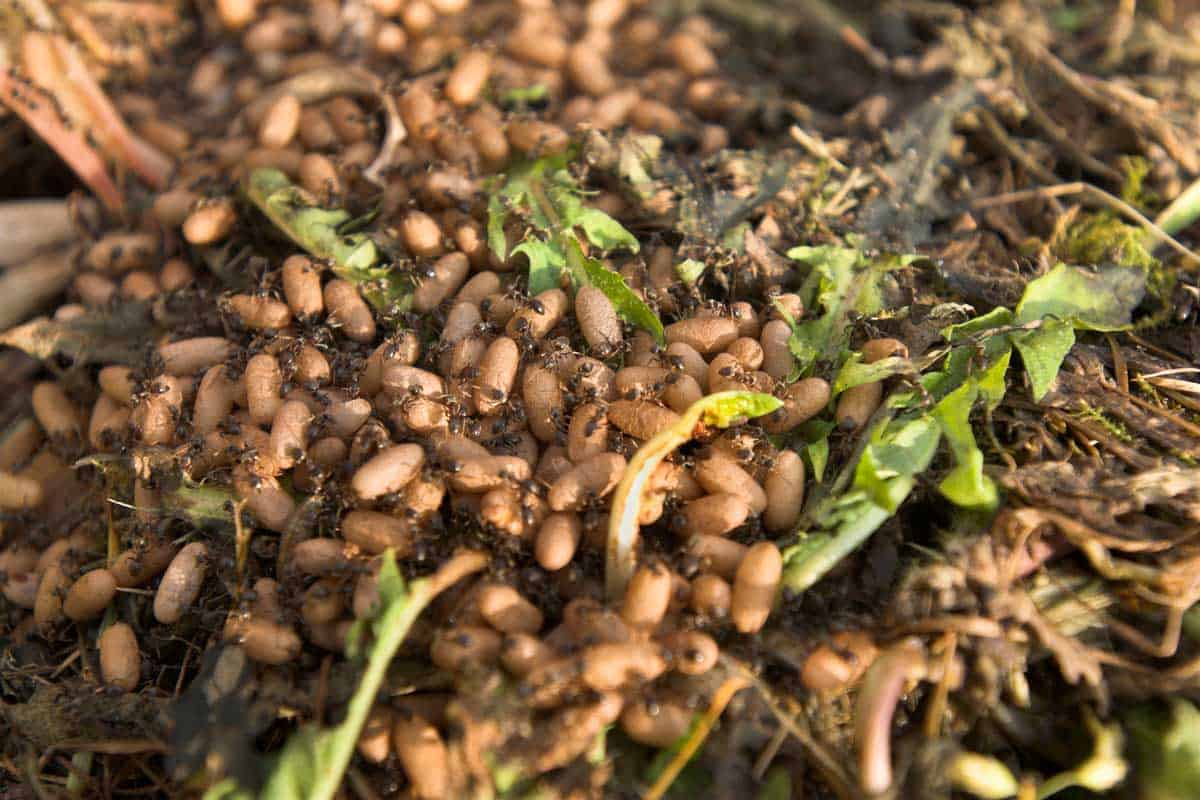

Gardening Tips and Tricks
How To Get Rid Of Ants In Compost
Modified: January 22, 2024
Looking for a solution to the common problem of ants in your compost? Discover effective methods to get rid of ants and maintain a healthy compost pile.
(Many of the links in this article redirect to a specific reviewed product. Your purchase of these products through affiliate links helps to generate commission for Chicagolandgardening.com, at no extra cost. Learn more)
Table of Contents
- Introduction
- Understanding the problem of ants in compost
- Why ants are attracted to compost
- The potential risks of ants in compost
- Natural methods to eliminate ants in compost
- Method 1: Removing ant-attracting materials from compost
- Method 2: Creating a physical barrier around the compost
- Method 3: Using natural ant repellents in and around the compost
- Method 4: Regularly turning and aerating the compost
- Chemical methods to control ants in compost
- Precautions to consider when using chemicals
- Conclusion
Introduction
Welcome to our comprehensive guide on how to get rid of ants in compost. Composting is a wonderful way to reduce waste and create nutrient-rich soil for your gardens. However, it is not uncommon to find ants making their way into your compost pile. While ants can play a beneficial role in the environment, their presence in compost can lead to a variety of problems.
In this article, we will explore why ants are attracted to compost, the potential risks they pose, and most importantly, the natural and chemical methods to eliminate ants from your compost. Whether you are a seasoned compost enthusiast or just getting started, understanding how to deal with ants in your compost will help ensure a successful and hassle-free composting process.
Before we delve into the solutions, it is important to note that ants are part of a healthy ecosystem and can contribute to the decomposition process in certain environments. However, when their population becomes overwhelming or they start causing issues, it is necessary to take measures to control their presence in your compost.
Now let’s explore the reasons behind the attraction of ants to compost and the potential problems that can arise as a result.
Understanding the problem of ants in compost
When ants invade your compost, they can disrupt the balance of beneficial organisms and hinder the decomposition process. While they may seem harmless at first, their presence can lead to several issues.
One of the main problems with ants in compost is that they tunnel through the organic matter, creating air pockets. This disturbs the natural decomposition process, as it prevents efficient airflow within the compost pile. Without proper aeration, the compost may become compacted and prone to developing foul odors.
In addition to disrupting the decomposition process, ants can also introduce pests and diseases into your compost. Ants are known to farm aphids and scale insects, which produce a sticky substance called honeydew. This honeydew can attract other pests like flies, gnats, and ants themselves, creating a vicious cycle of pest infestation in your compost.
Moreover, ants can be a nuisance in your garden if they start transporting parts of the compost pile to build their nests. They may carry seeds or organic matter to new locations, potentially spreading weeds or introducing foreign materials into your landscape.
Lastly, if you plan to use the compost in potted plants or indoor containers, ants can become a problem. Their presence in the compost can lead to ants infesting your plants, invading your home, or causing damage to the roots and foliage.
Now that we understand the potential issues caused by ants in compost, let’s explore the reasons why ants are attracted to compost in the first place.
Why ants are attracted to compost
Ants are naturally drawn to compost piles due to the abundance of food and ideal living conditions they offer. Understanding the reasons behind their attraction can help us develop effective strategies to keep them away.
Firstly, ants are attracted to the moisture present in compost. Compost piles provide a moist environment that is essential for the decomposition process. This moisture acts as a magnet for ants seeking a water source, especially during hot and dry periods. Ensuring proper moisture levels in your compost will help reduce ant activity.
Secondly, ants are opportunistic feeders, and compost provides a buffet of organic materials. They are attracted to the rich mixture of decaying plant matter, food scraps, and other organic components found in compost. The scent of decomposing organic matter acts as a signal to ants that there is a potential food source available.
Additionally, compost piles offer ants a warm and protected environment. The organic materials in the compost generate heat as they break down, creating a cozy habitat that ants find appealing. The layers of organic matter also provide insulation against external conditions, making the compost pile an ideal spot for ants to establish their colonies.
Lastly, ants are attracted to the microorganisms present in compost. The decomposition process is carried out by a variety of beneficial bacteria, fungi, and other microorganisms. These microorganisms produce byproducts and release odors that act as attractants for ants. Ants are known to have a keen sense of smell and can detect these chemical signals from afar.
By understanding why ants are attracted to compost, we can implement measures to make the compost pile less appealing to them. In the next section, we will explore the potential risks associated with ants in compost and the importance of addressing the issue promptly.
The potential risks of ants in compost
While ants may seem harmless, their presence in compost can lead to a variety of risks and challenges. It is important to address the issue promptly to prevent any negative consequences.
One potential risk of ants in compost is the disruption of the decomposition process. Ants tunneling through the compost pile can create air pockets, inhibiting proper airflow. This can lead to compaction and anaerobic conditions, resulting in a slower decomposition rate and unpleasant odors. In turn, this can delay the production of nutrient-rich compost for your garden.
Ants in compost can also introduce additional pests and diseases. Some species of ants have a symbiotic relationship with honeydew-producing insects, such as aphids. These ants “farm” these insects, protecting them from predators and ensuring a steady supply of honeydew. The honeydew can attract other pests like flies, gnats, and ants themselves, leading to a cascade of pest problems in your compost pile.
Furthermore, ants can become a nuisance in your garden if they start transporting compost materials to build their nests. They may disperse seeds or organic matter, potentially spreading weeds and invasive plants. This can lead to unwanted vegetation growth and an imbalance in your garden ecosystem.
In cases where you plan to use the compost for potted plants or indoor containers, ants can pose a significant problem. They may infest the plants, causing damage to the roots and foliage. This can jeopardize the health and well-being of your plants, hindering their growth and productivity.
Lastly, if the ant population in your compost becomes too large, they may venture out of the pile and into your living spaces. Ant trails can be unsightly and inconvenient, causing disturbance and discomfort. Additionally, certain ant species can bite or sting, posing a risk to you and your family.
In light of these potential risks, it is crucial to take action to eliminate ants from your compost pile. In the following sections, we will explore both natural and chemical methods to control ants and maintain a healthy composting environment.
Natural methods to eliminate ants in compost
If you prefer to take an organic and environmentally friendly approach, there are several effective natural methods to eliminate ants from your compost. These methods focus on disrupting the ants’ habitat and deterring their presence without the use of chemicals.
Method 1: Removing ant-attracting materials from compost: Start by removing any ant-attracting materials from your compost pile. These can include sugary and greasy food scraps, overly moist or wet organic matter, or large chunks of food that ants can easily access. By depriving ants of their food source, you discourage their presence in the compost pile.
Method 2: Creating a physical barrier around the compost: Consider creating a physical barrier to prevent ants from accessing the compost pile. You can place a layer of heavy-duty fabric or wire mesh underneath the pile to block their entry. Ensure that the barrier is buried a few inches into the ground to make it more effective.
Method 3: Using natural ant repellents in and around the compost: There are several natural substances that ants find repulsive and can be used as deterrents. Sprinkle ingredients such as cinnamon, cayenne pepper, diatomaceous earth, or food-grade diatomaceous earth around the perimeter of the compost pile. These substances create a barrier that ants are reluctant to cross.
Method 4: Regularly turning and aerating the compost: Ants are less likely to establish colonies in compost piles that are regularly turned and aerated. By regularly mixing and aerating the compost, you disturb the ants’ nests and disrupt their habitat. This makes the compost pile less hospitable and encourages the ants to look for alternative locations.
Method 5: Introducing natural ant predators: Consider introducing natural ant predators to your garden, such as beneficial nematodes or certain bird species. These predators feed on ants and their larvae, helping to control their population naturally. However, care should be taken to ensure that the introduced predators do not disrupt the balance of your ecosystem.
Method 6: Creating a designated ant colony area: If you have a large property or garden space, consider creating a designated area away from the compost pile where ants are allowed to thrive. By diverting their attention and providing an alternative habitat, you can encourage ants to occupy this designated area rather than your compost.
By implementing these natural methods, you can effectively manage and eliminate ants from your compost pile. However, if the infestation persists or worsens, you may need to consider chemical methods as a last resort. We will discuss these methods in the following section.
Method 1: Removing ant-attracting materials from compost
One effective natural method to eliminate ants from your compost is by removing any ant-attracting materials. Ants are drawn to sugary and greasy food scraps, overly moist or wet organic matter, and large chunks of food that are easily accessible. By depriving ants of their preferred food sources, you discourage their presence in the compost pile.
Step 1: Start by assessing the contents of your compost pile. Look for any food scraps that are particularly appealing to ants, such as leftover fruits, sweet desserts, or oily leftovers. Remove these items from the compost and dispose of them separately.
Step 2: Check the moisture levels in your compost. Ants are attracted to moist or wet conditions, as it provides them with a water source. If your compost is excessively wet, it may be necessary to add more dry materials, such as leaves, shredded newspaper, or sawdust, to balance the moisture content.
Step 3: Break down large chunks of food or organic matter in the compost pile. Ants are more likely to be attracted to larger pieces, as they provide easy access to the food source. By breaking down these large chunks into smaller pieces, you make it less appealing for ants to scavenge.
Step 4: Monitor your compost regularly and remove any new ant-attracting materials as they appear. This can include fresh food scraps or any items that may have accidentally ended up in the compost, such as sugary drinks or spoiled dairy products.
Step 5: Consider using a covered compost bin to further prevent ants from accessing the compost. This can provide an additional barrier and discourage ants from nesting in and around your compost pile.
By consistently removing ant-attracting materials from your compost, you create an environment that is less appealing to ants. This, in turn, can help reduce the ant population in your compost and discourage their presence altogether.
Method 1 is just one of the natural methods to eliminate ants in compost. In the following sections, we will explore other effective natural methods, as well as chemical methods, which can be used if the infestation persists or worsens.
Method 2: Creating a physical barrier around the compost
Creating a physical barrier around your compost is an effective natural method to prevent ants from accessing the pile. By blocking their entry, you can deter ants from establishing colonies in your compost and significantly reduce their presence.
Step 1: Start by assessing the area where your compost pile is located. Determine the boundaries of the composting area and identify potential entry points for ants, such as gaps in the ground or openings in the composting structure.
Step 2: Choose a suitable material to create a physical barrier. Heavy-duty fabric, wire mesh, or hardware cloth are commonly used options. Ensure that the material is sturdy enough to withstand the weight of the compost and the activities of tunneling ants.
Step 3: Dig a trench around the perimeter of the compost pile, ensuring that it is at least 6-8 inches deep. This will prevent ants from burrowing under the barrier and accessing the compost from below. You can choose to line the sides of the trench with the selected material to create a more effective barrier.
Step 4: Place the chosen material into the trench, extending it above ground level to create a physical barrier. Make sure to secure the material firmly so that it cannot be easily displaced by weather or animal activity.
Step 5: Inspect the barrier regularly to ensure that there are no gaps or openings that ants can exploit. Repair any damages or reinforce weak areas promptly to maintain an effective barrier against ants.
In addition to creating a barrier around the compost pile, it is a good practice to keep the area surrounding the compost clean and free from organic debris that may attract ants. Regularly remove any fallen fruit, spilled food, or other potential ant food sources in the vicinity of the compost.
Creating a physical barrier around your compost is an excellent natural method to prevent ants from infiltrating the pile. By blocking their access, you can create an inhospitable environment for ants and maintain a healthy composting process.
Method 2 is just one of the natural methods to eliminate ants in compost. In the following sections, we will explore other effective natural methods, as well as chemical methods, which can be used to control ants if the infestation persists or worsens.
Method 3: Using natural ant repellents in and around the compost
Another effective natural method to eliminate ants from your compost is by using natural ant repellents. These substances create a barrier that ants find repulsive and can be used both in and around the compost pile to deter ants from establishing colonies.
Step 1: Cinnamon: Sprinkle cinnamon powder around the perimeter of the compost pile. Ants dislike the strong scent of cinnamon and will avoid crossing this barrier. Reapply the cinnamon as needed, especially after rain or heavy watering.
Step 2: Cayenne Pepper: Similar to cinnamon, ants are repelled by the heat and scent of cayenne pepper. Sprinkle cayenne pepper around the compost pile to create a deterrent for ants. Be cautious when using this method if you have pets or small children, as cayenne pepper can cause irritation.
Step 3: Diatomaceous Earth: Diatomaceous earth is a fine powder made from the microscopic remains of fossilized algae. It acts as a natural insecticide, penetrating the exoskeleton of ants and causing dehydration. Sprinkle a layer of food-grade diatomaceous earth around the compost pile to create a barrier that ants will avoid.
Step 4: Coffee Grounds: Ants dislike the smell and acidity of coffee grounds. Spread used coffee grounds around the perimeter of the compost pile to deter ants from approaching. Additionally, coffee grounds can enrich the compost with organic matter as they break down.
Step 5: Mint Leaves: Ants have an aversion to the strong scent of mint. Crush fresh mint leaves and scatter them around the compost pile to create a natural repellent. Mint can also be grown near the composting area to discourage ants from approaching.
Note: It is important to reapply these natural ant repellents regularly, especially after rain or heavy watering, as the effectiveness may diminish over time.
In addition to using natural ant repellents, maintaining a clean and tidy compost area is essential. Remove any spilled food, fallen fruit, or other organic debris that may attract ants. By eliminating food sources and using natural repellents, you can reduce ant activity in and around your compost.
Method 3 is just one of the natural methods to eliminate ants in compost. In the following sections, we will explore other effective natural methods, as well as chemical methods, which can be used to control ants if the infestation persists or worsens.
Method 4: Regularly turning and aerating the compost
Regularly turning and aerating the compost is a natural method that can help eliminate ants and create an inhospitable environment for them in the compost pile. By disrupting their nests and habitat, you can discourage ants from establishing colonies and reduce their presence.
Ants prefer undisturbed areas for nesting, and a well-maintained compost pile with regular turning and aeration can disrupt their colonies and make the environment less desirable for them.
Step 1: Use a pitchfork or a compost turning tool to regularly turn the compost pile. Start by moving the outer layer of the pile to the center, and the center of the pile to the outer edges. This helps to mix the contents of the compost pile and break up any ant colonies that might be forming.
Step 2: Aim for regular aeration of the compost pile by creating air pockets within the pile. This can be done by inserting a sturdy stick or pole into the pile and twisting it to create holes. These holes allow for better airflow, which can discourage ants from nesting and improve the overall decomposition process.
Step 3: Adjust the moisture levels in the compost as needed. Excessive moisture can attract ants, while dry compost can deter them. Aim for a slightly moist but not soggy compost pile. If the compost is too wet, add dry, carbon-rich materials like shredded leaves or newspaper to help absorb the excess moisture.
Step 4: Regularly monitor and inspect the compost pile for any signs of ant activity. If you notice ant colonies or large concentrations of ants in specific areas, focus on turning and aerating those sections more frequently to disrupt their nests and discourage their presence.
Regularly turning and aerating the compost not only helps deter ants but also enhances the overall decomposition process. By mixing the compost materials and improving airflow, you create an environment more conducive to beneficial microbes and organisms responsible for breaking down organic matter.
Remember to wear protective gloves and clothing while turning the compost pile, as some ants may sting or bite if they feel threatened.
Method 4 is just one of the natural methods to eliminate ants in compost. In the following sections, we will explore other effective natural methods, as well as chemical methods, which can be used to control ants if the infestation persists or worsens.
Chemical methods to control ants in compost
If natural methods have proven ineffective in controlling the ant population in your compost, there are chemical options available. However, it is important to exercise caution and use these methods as a last resort, taking necessary precautions to protect your health and the environment.
Ant baits: Ant baits can be effective in controlling ants in compost. These baits contain insecticides that are attractive to ants, which they carry back to their colonies. However, it is crucial to choose a bait specifically formulated for ants and labeled safe for use in composting environments. Follow the manufacturer’s instructions carefully to ensure proper application and safety.
Contact insecticides: Contact insecticides can provide immediate control of ants. These products come in spray or powder form and directly kill ants upon contact. It is essential to select a contact insecticide that is approved for use in composting environments and follow the instructions provided. Be mindful that some contact insecticides may have adverse effects on beneficial organisms in the compost.
Chemical barriers: Chemical barriers can be applied around the perimeter of the compost pile to prevent ants from reaching it. These barriers contain insecticides that repel ants upon contact. Similar to other chemical methods, it is crucial to choose a product designed specifically for controlling ants and approved for use in composting environments. Follow the instructions provided by the manufacturer to ensure safe and effective application.
Precautions: When using chemical methods to control ants in compost, it is important to take precautionary measures. Wear protective clothing, such as gloves, long sleeves, and goggles. Avoid direct contact with the product and keep children and pets away from treated areas. Choose products that are specifically labeled as safe for use in composting environments and follow the instructions meticulously to minimize any potential risks.
Environmental considerations: It is crucial to be mindful of the potential environmental impact of using chemical methods. Chemicals can have adverse effects on beneficial organisms in the compost and may persist in the environment. Use chemical methods sparingly and only as a last resort if other natural methods have proven ineffective. Consider the long-term consequences and environmental implications before employing chemical control methods.
Remember, chemical methods should only be used after exhausting all natural methods and when the infestation is severe or persistent. It is always best to prioritize environmentally friendly and natural solutions whenever possible.
As a responsible gardener, it is essential to carefully consider the risks and benefits of using chemical methods to control ants in compost. Consult with local gardening experts or professionals for advice on the most suitable and environmentally friendly chemical options for your specific situation.
Precautions to consider when using chemicals
When using chemicals to control ants in compost, it is crucial to follow certain precautions to ensure safety and minimize any potential risks to your health and the environment. Here are some important precautions to consider:
Read and follow instructions: Carefully read and follow the instructions provided by the manufacturer of the chemical product. These instructions will outline the proper usage, application rates, and safety precautions specific to the product. Failure to follow instructions can result in ineffective control or increased risks.
Use appropriate protective gear: Wear appropriate protective gear when handling and applying chemical products. This may include gloves, long sleeves, protective eyewear, and a mask if needed. Protective gear can help prevent direct contact with the chemicals and minimize the risk of exposure.
Avoid contamination: Take precautions to prevent the contamination of water sources, food, or other areas of your garden. Avoid applying chemicals near water bodies, wells, or edible plants. Be cautious when using chemicals in proximity to areas frequented by children or pets and ensure they do not have access to treated areas.
Proper storage and disposal: Store chemicals in a secure location, away from children, pets, and food storage areas. Follow the disposal instructions provided on the product’s label. Improper storage or disposal can have harmful effects on the environment and pose a risk to wildlife, water sources, and beneficial organisms in your garden.
Consider alternative methods: Before using chemicals, exhaust all possible natural methods to control ants in your compost. Chemical control methods should be a last resort when all other options have proven ineffective. Consider the potential risks and long-term consequences of using chemicals and prioritize environmentally friendly solutions whenever possible.
Monitor and reassess: Regularly monitor the effectiveness of the chemical control methods. If the infestation persists or worsens despite the use of chemicals, it may be necessary to seek alternative solutions or consult with a professional pest control service. Continuously reassess the situation and adjust your approach as needed.
It is essential to consider these precautions to ensure the safe and responsible use of chemical methods for ant control. Prioritize the well-being of your garden, the environment, and the health of your family and pets. When in doubt, consult with local gardening experts or professionals for guidance on the most suitable and low-risk chemical options for your specific situation.
By taking these precautions and making informed decisions, you can effectively control ants in your compost while minimizing the potential risks associated with the use of chemicals.
Conclusion
Dealing with ants in compost can be a challenge, but by understanding the reasons behind their attraction, the potential risks they pose, and the various methods of control, you can effectively manage and eliminate ants from your compost pile.
Natural methods, such as removing ant-attracting materials, creating physical barriers, using natural ant repellents, and regularly turning and aerating the compost, offer environmentally friendly solutions that promote a healthy composting process. These methods disrupt ant habitat, discourage their presence, and minimize the risks associated with chemicals.
However, if natural methods prove ineffective or the ant population becomes overwhelming, chemical methods can be used as a last resort. It is crucial to exercise caution, follow precautions, and ensure the responsible use of chemical products to safeguard your health and the environment.
Remember to assess the effectiveness of your chosen methods, monitor the compost pile regularly, and adjust your approach as needed. Maintaining a clean and tidy compost area, removing ant-attracting materials, and implementing preventive measures can help prevent future ant infestations and maintain a healthy composting environment.
By implementing the appropriate methods and precautions, you can eliminate ants from your compost effectively and ensure a successful composting process. Remember, the ultimate goal is to create nutrient-rich compost while promoting a balanced and sustainable garden ecosystem.
We hope that this comprehensive guide has provided you with valuable insights and practical solutions to tackle ants in your compost. With the right approach and commitment, your composting journey can continue smoothly, free from the presence of unwanted ants.

